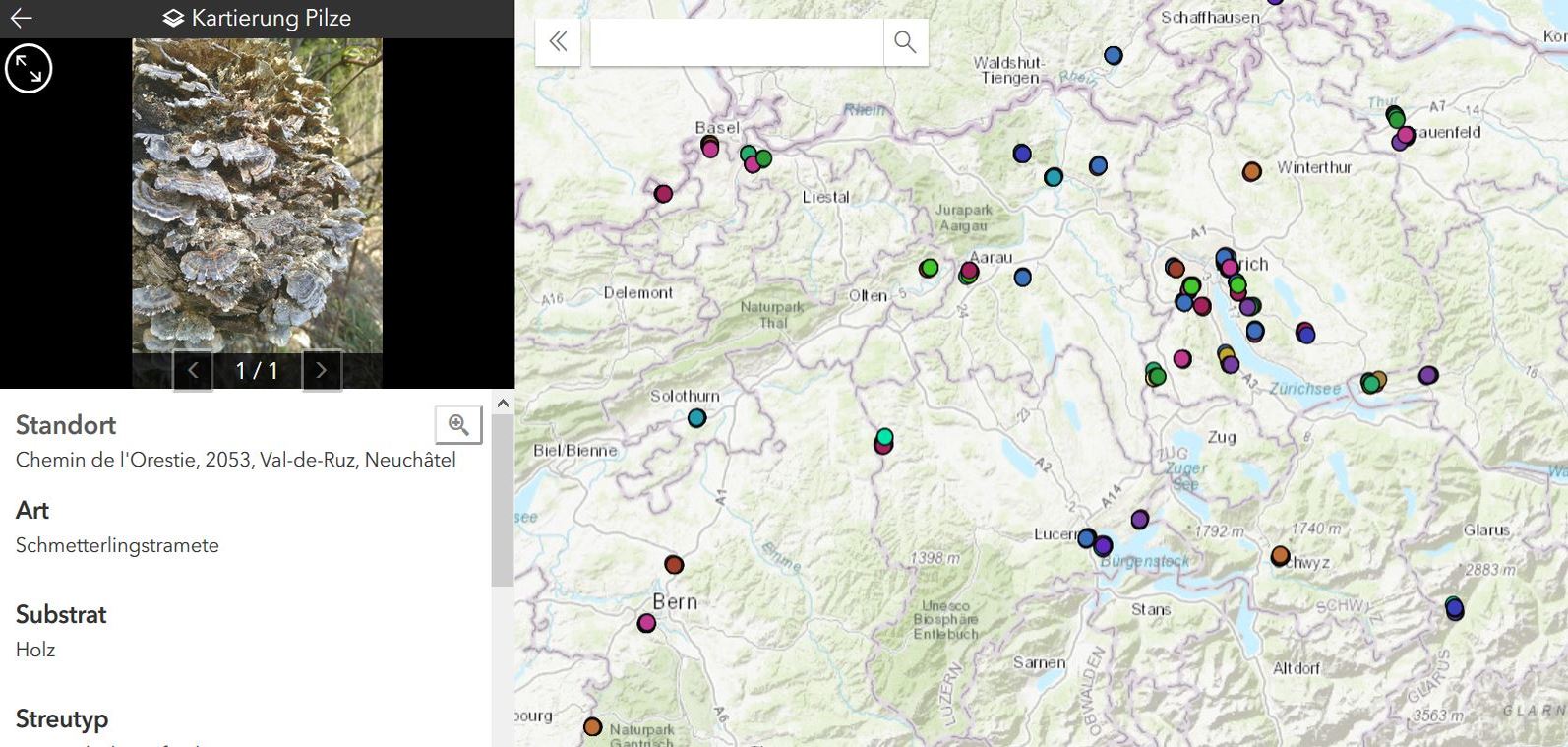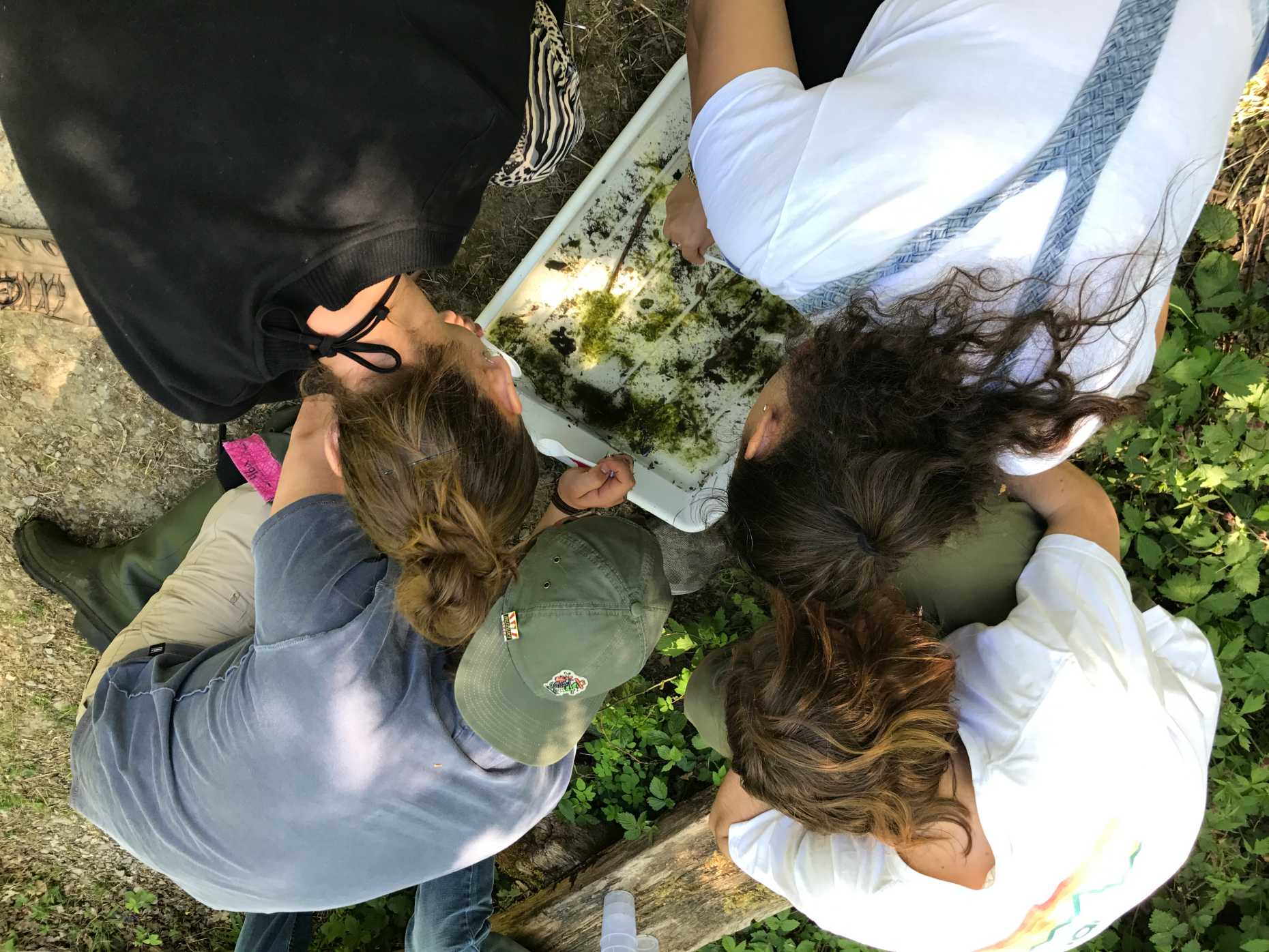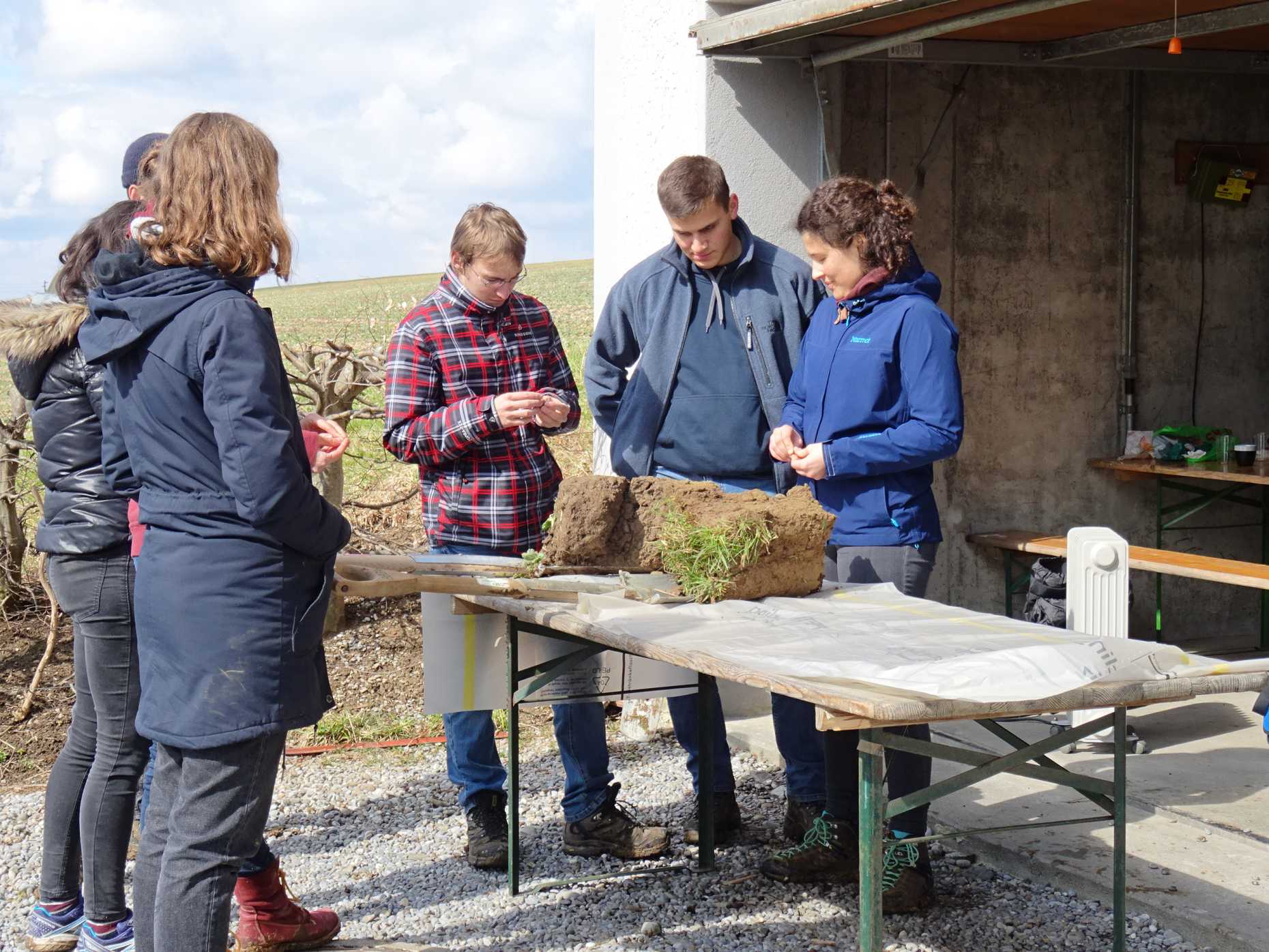In self-control mode: excursions and project work at D-USYS
- D-USYS
- Environmental sciences
Emergency operations at ETH Zurich: In only a few days' time, our lecturers switched from classroom teaching to online classes, something that would normally have taken years of project planning to do. They recorded their lectures and put exercises online, sometimes literally overnight. But what happened to the excursions and all those courses that require working in small groups? Taking a closer look.
For the approximately 140 students of the Environmental Sciences programme at ETH Zurich, the mostly half-day biodiversity excursions are among the highlights of their first year. Finally there is an opportunity to leave the lecture hall, head out with the experts, receive input from them and - last but not least - have the occasional one-on-one conversation as well . "As the name suggests, the excursions are all about biodiversity," explains Andrea Funk, who is responsible for the degree programme's excursions. The aim is not to get to know as many species as possible, but rather to understand the underlying system based on a selection of species and to apply the methods for recording biodiversity.
Solo excursions
Each year, D-USYS offers a selection of around 15 excursions, six of which are compulsory for students. They focus, among other things, on forest and water birds, insects in the meadow and forest, small animals in streams and ponds, arachnids, sweet grasses, trees, shrubs or mushrooms. But this year everything is different: "The excursions take place in self-control mode," says Urs Brändle, teaching specialist at D-USYS. Only four of the 50 half days which were organised had to be cancelled. All others were adjusted to fit in with the ETH's emergency operations.
The tracking app of the D-USYS
The main difference: this year the students go out on their own, not in a group. In an area of their choice, they identify mushrooms, trees or animals, depending on the theme of their excursion. As in previous years, the preparatory material is available online. And in order to go on the excursion, students will have had to pass the online test. Students record the plant or animal species they find using the "Collector app" on their smartphone. The data will later be analysed in data workshops, which also take place online. "The data on the app tell us where the students conducted their excursion," explains Brändle. The students' excursions covered an area ranging from southern Germany to Ticino.
Learning for the future
The identification of an insect or plant species in nature is not always a trivial task. Especially when there is no expert to hand. "That's why we now also work with the nature app 'iNaturalist'," Brändle continues. The app is a citizen science project involving over 400,000 researchers, interested laypeople and biologists. They all collect data on biodiversity around the world and create maps, which they make available to the research community. "For the students, being part of such a citizen science scheme is of clear benefit," Brändle believes. Universities, too, are increasingly working with the expertise afforded by the public. This is why the teaching specialist believes that it is conceivable for iNaturalist to continue to be used and for the data workshops to be held online only in the future.

Interdisciplinary project work: still an issue despite the corona crisis
How do you organise project work in times of physical distancing? This was also a question those in charge of the Agricultural Sciences course asked themselves. In the "Interdisciplinary project" course, Agricultural and Food Sciences Master's students work on specific questions of project partners in the canton of Aargau. The students are given support and instructions by two coaches, who are lecturers from both study programmes.
Experiments at home
The projects included surveys, clarifications with experts and the manufacture of test products. None of this can be carried out as originally planned. "Perhaps some private kitchens can now double up as laboratories? We are curious to see what the teams come up with," reports Brigitte Dorn, who is co-responsible for the course within the Agricultural Sciences study programme. Fortunately, the students and the project partners have adapted their questions to the circumstances. Meetings with the project partners, in the team and with the coaches take place online, as well as the workshops "Project Management" and "Team Roles" and the "World Café" in mid-May to reflect on the status of the project work done so far. And coronavirus or not: the interdisciplinary project work will be completed in mid-June with the presentation of the results.


